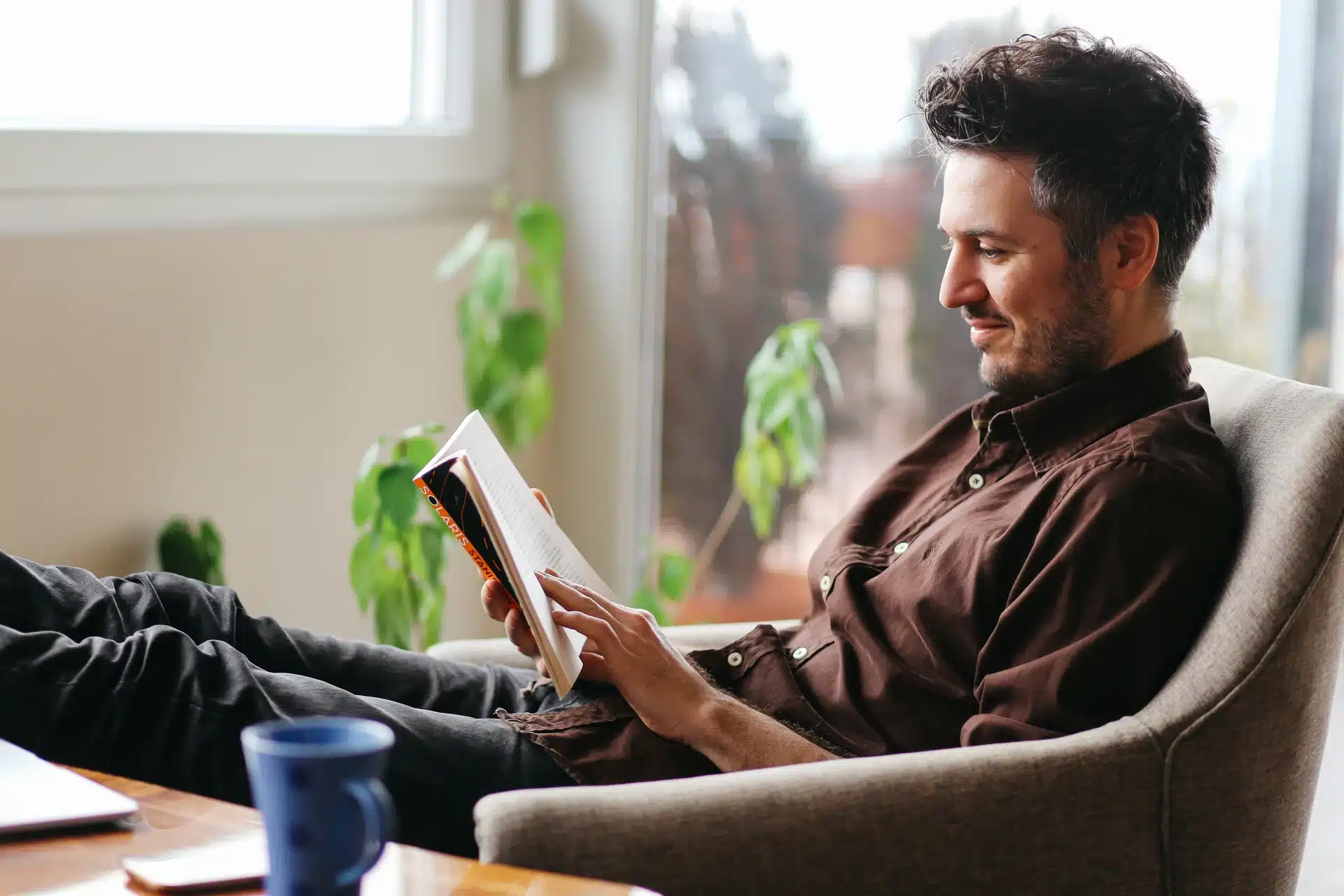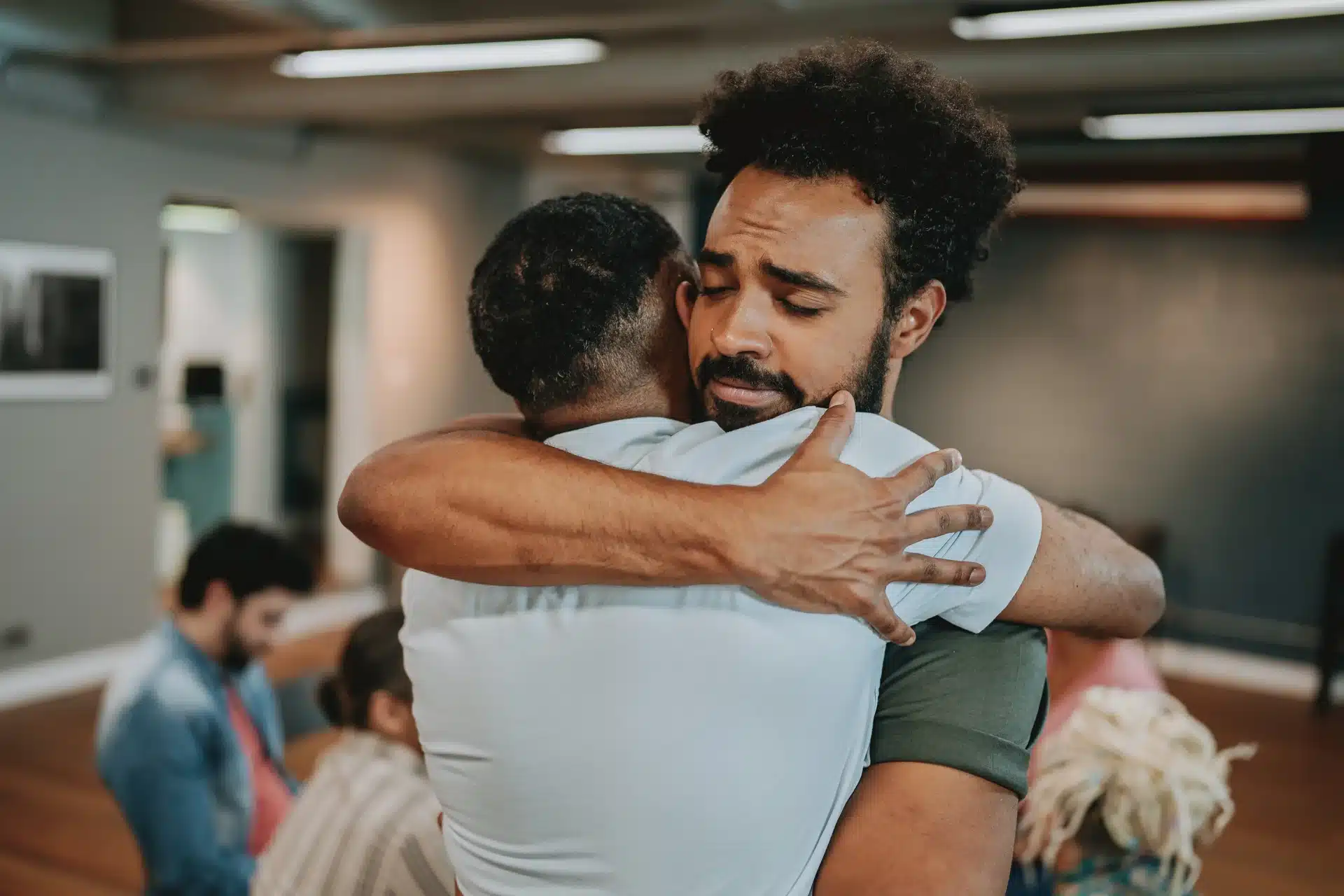
Mental Health Treatment Center
Step towards a healthier, happier you.
Comprehensive Mental Health Treatment for Lasting Wellness
At Meadows Behavioral Care, we offer inpatient and outpatient mental health treatment tailored to each patient. With expert care from industry-leading professionals, our range of therapies addresses diverse mental health needs. Plus, we keep supporting you even after your initial treatment through our alumni network, helping you stay well in the long run.
Mental Health Challenges: More Common than You Might Think.
In the US, 1 in 5 adults experience mental illness each year, while 1 in 20 face serious mental illness. These numbers highlight the importance of seeking help when it’s needed. At The Meadows, we provide expert, compassionate care to address mental health challenges and help individuals find lasting recovery.
They changed my life. Now I have a career helping people who struggle with mental health and addiction as I did.
Thomas
MBH Alumni
Types of Mental Health Issues and Treatment

Codependency and Control Issues
Take back your life. Our care helps you break free from unhealthy relationships and gain a strong sense of who you are, leading to better connections with others.

Depression
Ease the weight of depression with our help. We find the deep reasons for your sadness and work to clear the clouds, bringing back your joy and drive.

Anxiety
Calm the storm inside. Our treatments for anxiety are designed to reduce stress and give you ways to handle worry, leading to a peaceful and fulfilling life.

Bipolar Disorder
Find your middle ground. Our experts help smooth out the ups and downs of bipolar disorder, giving you the tools to manage your life better.

Post Traumatic Stress Disorder (PTSD)
Move past your trauma and into a hopeful future. Our treatment for PTSD helps you heal from past hurts and build strength for what’s next.
Why Choose Us?
Established Treatment Model
We create personalized treatment plans tailored to your unique experience of emotional trauma, using proven strategies that work best for your healing process. Our whole-person approach addresses both the immediate emotional distress and the deeper unresolved pain.


Personalized Care Plans
We take the time to learn about each patient’s background to create a mental health treatment plan tailored specifically to their needs and experiences. This approach ensures that our treatment strategies align with what will most effectively help them heal and grow.
Real Results
After completing treatment at Meadows, patients report feeling better about themselves, enjoying greater independence, and building stronger, healthier relationships. We’re proud to say our patients continue to thrive and report sustained benefits, even six months after leaving our care.
12 Months Post-Treatment
97% Living in stable housing
94% Report good relationship with close family
77% Employed or in school
I highly recommend the Meadows for mental health and trauma treatment. If you are ready to make a change in your life, this is the place to be!
Andrea
MBH Alumni
Inpatient Mental Health Treatment
Inpatient Mental Health Treatment Near You
Our inpatient mental health treatment centers provide intensive, daily support in a structured environment. This option is ideal for those who need focused care to start their recovery journey.
Our Residential Mental Health Treatment Centers
Outpatient Mental Health Treatment
Outpatient Mental Health Treatment Near You
Receive expert support while continuing with your daily responsibilities, ensuring you stay on track toward recovery. Explore our 8-week intensive outpatient programs.
Our Outpatient Mental Health Treatment Centers
-
Mental Health FAQ
How do I know if what I’m feeling is a mental health condition?
Everyone experiences emotional ups and downs; however, if your feelings are intense, persistent, and/or interfere with your daily life, they may be signs of a mental health condition — especially if you’re experiencing suicidal ideation. Regular mental health screenings can help you monitor symptoms and track whether they’re improving or worsening over time. If certain symptoms persist, it might be a sign to reach out for more specialized assistance.
What causes mental illness?
Mental illness can be caused by a combination of factors, including trauma, genetics, brain chemistry, life experiences, and environmental influences. No single cause applies to everyone, and often, multiple contributing factors are present.
How do I know when I should seek treatment for my mental health?
If your mental health is impacting your relationships, work, physical health, or overall well-being, it’s a good time to seek help. You don’t have to wait for a crisis to receive treatment – early intervention can make a significant difference. Our team can help assess your needs and guide you towards the right treatment. Learn more about our mental health treatment options and the admissions process here on our site and contact us if you have any questions.
What are the common signs and symptoms of someone struggling with their mental health?
The signs and symptoms of someone struggling with their mental health may present differently from person to person, but common signs include:
Expressing thought of self-harm or suicide
Ongoing sadness, anxiety, or irritability
Withdrawing from friends and activities
Sudden mood changes
Sleep or appetite disturbances
Difficulty focusing or functioning
Feeling hopeless or overwhelmed
Substance use
What should I do if I—or someone I know—is in crisis?
If you, a loved one, or someone you know is in immediate danger, call 911 or go to the nearest emergency room. For urgent mental health support, contact the Suicide & Crisis Lifeline by calling or texting 988 (available 24/7). At The Meadows, we can help guide you through what to do next and understand the best treatment care.
How can I support a loved one struggling with their mental health?
Supporting a loved one struggling with mental health starts with listening and letting them know they are not alone. Educate yourself about what they are going through so you can better understand their experience. It is also very important to take care of your own well-being so you can offer consistent, compassionate support, even if they’re not ready to learn more about treatment options.
How do I get started with mental health treatment?
The first step towards treatment for mental health begins with reaching out.
Does The Meadows provide post-treatment recovery support?
At The Meadows, we know that recovery doesn’t end when treatment does. The Meadows offers several different options, including step-down programs after inpatient treatment through our outpatient programs with locations across the country, as well as our experienced Case Management team that provides ongoing support. Additionally, our alumni program, Onward, is open to any individual who has gone through one of our programs. Onward provides individuals with a supportive community committed to ongoing resources and empowerment, knowing that recovery is a lifelong journey.
Does treatment for mental health include family involvement or support?
Family or friend involvement is crucial to the healing process for mental health. In our programs, we offer a variety of resources for family members, including educational and communication tools, as well as, in some cases, onsite workshops. The decision to attend a family program is guided by several factors, including the length of stay, clinical appropriateness, patient desire, and others. Once admitted, our team members will work with the patient and their family to determine the next steps.

Traveling for Care?
People from all over choose The Meadows for expert care in trauma, addiction, and mental health, a private environment, and extraordinary recovery outcomes. We ensure every step of your journey is supported so you can focus fully on healing.

Find Your Path to Mental Health Recovery
You have the power to live the life you want, and we have the tools to get you there. Contact our admissions team today to find the mental health treatment that works best for you today.